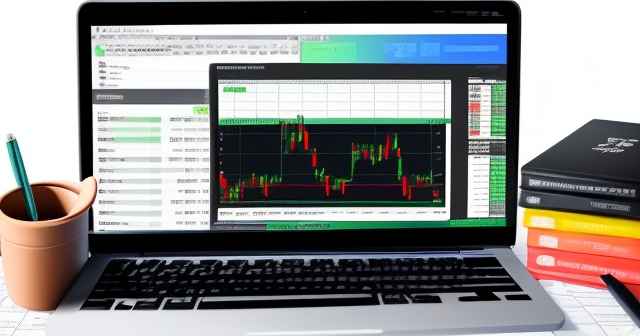Understanding the Landscape: Choosing Your Spread Betting Platform in the UK
Hello, and welcome to our exploration of spread betting platforms available to you here in the UK. If you’re a trader looking to speculate on financial markets without owning the underlying assets, spread betting is likely on your radar. It offers a unique and potentially tax-efficient way to engage with everything from currency pairs and stock indices to individual shares and commodities.
Choosing the right platform is not just a matter of picking the first one you see; it’s about finding a partner that provides the tools, reliability, security, and cost structure that aligns with your trading goals and risk tolerance. We’re here to guide you through the intricate landscape of UK spread betting platforms, helping you understand what truly matters.
Think of us as your guide on this journey. We’ll break down the complexities, highlight the crucial details, and empower you with the knowledge you need to make informed decisions. Are you ready to dive in?
The Core Mechanics: How Spread Betting Works for You
At its heart, spread betting is a derivative product. This means you’re not buying or selling the actual asset – you’re simply speculating on whether its price will go up or down. The “spread” is the difference between the buy price and the sell price offered by the broker, and it’s essentially how the broker makes money on the trade.
- Spread betting allows you to speculate without owning the underlying asset.
- The spread is the broker’s profit source from your trades.
- You can bet on price movements with flexibility and without financial ownership.
When you place a spread bet, you decide how much you want to bet per point of movement in the asset’s price. For example, you might bet £5 per point on the UK 100 index. If the index moves up by 10 points and you bet on it rising (a ‘buy’ or ‘long’ bet), you’d make £50 (£5 x 10 points). Conversely, if it moves down by 10 points, you’d lose £50.
This ‘per point’ system is a key characteristic of spread betting and differs from other trading methods like Contracts for Difference (CFDs), which we’ll discuss later. It simplifies calculating potential profit or loss based directly on the points moved and your stake per point.
The ability to bet on both rising (going long) and falling (going short) markets is a powerful feature. This means you can potentially profit regardless of whether the overall market sentiment is bullish or bearish, adding flexibility to your trading strategy.
The UK Tax Advantage: A Key Benefit of Spread Betting
One of the most compelling reasons UK residents turn to spread betting is its significant tax advantage. In the UK and Ireland, profits from spread betting are currently considered gambling winnings and are therefore exempt from both Capital Gains Tax (CGT) and Stamp Duty. This is a major distinction when comparing it to trading other instruments like shares or CFDs, where profits might be subject to CGT.
Imagine making a substantial profit on a trade. With spread betting, that profit is generally yours to keep without having to allocate a portion to taxes. This can have a material impact on your net returns, especially for active traders.
However, it’s crucial to remember that tax laws can change, and individual circumstances vary. While the current tax treatment is favourable, you should always consider consulting a tax professional for advice specific to your situation. But for now, the tax-free nature of spread betting profits remains a primary draw for traders in the UK.
| Key Tax Benefits | Implications |
|---|---|
| No Capital Gains Tax | Keeps more profits from trades. |
| No Stamp Duty | Potentially lower transaction costs. |
| Considered Gambling Winnings | Offers distinct tax advantages compared to traditional trading. |
Understanding and Navigating the Risks: A Serious Consideration
While the potential for tax-free gains and the power of leverage are attractive, we must be unequivocally clear: spread betting is a high-risk product. The data is stark – a significant percentage of retail investor accounts lose money when trading these leveraged instruments. We’ve seen figures ranging widely, often cited between 68% and 89% depending on the specific provider and timeframe.
The primary driver of this high risk is leverage. Leverage allows you to control a much larger position in the market with a relatively small amount of capital (your margin). For example, with 100:1 leverage, a £100 deposit could control £10,000 worth of exposure to an asset. If the market moves in your favour, leverage magnifies your profits. But, and this is the critical point, if the market moves against you, leverage also magnifies your losses, and you can lose money rapidly, potentially exceeding your initial deposit.
Some platforms offer features like Negative Balance Protection (for retail clients under FCA rules), which *can* prevent your account balance from going below zero, effectively capping your losses at your deposited funds. However, this is not a universal guarantee across all providers or account types, and even with it, losing your entire deposit is a real and common outcome.
Furthermore, trading without risk management tools like stop-loss orders, particularly when going short, could theoretically expose you to unlimited losses if the market price continues to rise indefinitely against your short position. This underscores the absolute necessity of understanding and utilising risk management strategies.
We cannot stress this enough: spread betting is not suitable for everyone. It’s a complex instrument that requires a solid understanding of both the markets and the inherent risks involved. Only trade with money you can afford to lose.

The Cornerstone of Trust: Regulation by the FCA
For residents of the UK, trading with a spread betting platform regulated by the Financial Conduct Authority (FCA) is absolutely crucial. The FCA is the primary regulatory body overseeing financial services in the UK, and its regulations are designed to protect investors like you.
An FCA-regulated broker must adhere to strict rules regarding capital requirements, operational standards, and client asset handling. A key protection is the requirement for brokers to hold client funds in segregated accounts, separate from the firm’s own operating capital. This means that in the unlikely event of the broker becoming insolvent, your funds held in these segregated accounts are protected and cannot be used by the firm’s creditors.
Furthermore, FCA-regulated firms are part of the Financial Services Compensation Scheme (FSCS), which can provide compensation up to a certain limit (currently £85,000) per eligible person, per firm, in the event of a firm failing and being unable to return your funds.
Trading with an unregulated or poorly regulated broker exposes you to significant risks, including potential fraud, mishandling of funds, and lack of recourse if something goes wrong. Always verify that a broker holds a valid FCA license before depositing any funds. Look for brokers regulated by multiple Tier-1 authorities (like ASIC in Australia, CySEC in Cyprus, etc.) as this often indicates a higher level of global compliance and oversight, although for UK residents, FCA regulation is the most important factor.

What Makes a “Best” Platform? Key Criteria for Evaluation
With numerous platforms available, how do you identify the one that’s “best” for you? It’s not a one-size-fits-all answer. The best platform will depend on your individual trading style, experience level, preferred markets, and priorities. However, there are key criteria we can use to evaluate and compare them:
- Regulation and Security: As we’ve discussed, FCA regulation is non-negotiable for UK traders. Look for segregated accounts and FSCS protection.
- Market Range: Does the platform offer access to the markets you want to trade? Top platforms boast vast selections, covering forex, indices, shares (global and UK), commodities, ETFs, and even cryptocurrencies. Access to a wide variety allows for greater diversification.
- Platform Technology & Tools: This is where you’ll spend your time trading. Is the platform intuitive and reliable? Does it offer advanced charting tools (various chart types, indicators, drawing tools)? Are there features like price alerts, trade execution alerts, and pattern recognition? Both web-based platforms and mobile trading apps should be considered for their usability and functionality.
- Pricing: Competitive spreads and low fees are crucial for profitability, especially for active traders. Look at the typical spreads on the markets you plan to trade, and be aware of other potential costs like overnight financing fees for holding positions overnight, and premiums for Guaranteed Stop-Loss Orders (GSLOs).
- Risk Management Tools: Beyond basic stop-loss and limit orders, does the platform offer valuable risk management features? GSLOs are particularly important as they guarantee your exit price regardless of market volatility (though they come at a cost). Some platforms offer additional tools like margin calculators or risk analysis features.
- Account Options: Does the broker offer a free, unlimited (or long-term) demo account? This is essential for practicing and testing the platform without risking real money. What are the minimum deposit requirements for a live account? Are there different account types (e.g., standard, professional) with varying benefits and requirements?
- Customer Support and Education: Is help readily available when you need it? Look for responsive customer support via phone, email, or live chat. Does the platform offer educational resources, tutorials, webinars, or articles to help you learn and improve your trading skills?
Evaluating platforms based on these factors will help you narrow down your choices and find a platform that genuinely meets your needs.
| Criteria | Factors to Consider |
|---|---|
| Regulation | FCA regulation and security of funds. |
| Market Access | Range of markets offered for trading. |
| Costs | Spread, fees, and other potential costs. |
A Deep Dive: Reviewing Leading UK Spread Betting Platforms
Based on industry analysis and market presence, several platforms consistently rank among the top choices for spread betting in the UK. Let’s look at some of the key players and their notable strengths, drawing from the provided data.
IG: A Market Leader with Breadth and Depth
IG is widely considered an industry leader and often features at the top of rankings for spread betting. With roots tracing back to 1974, they have extensive experience. IG offers a truly vast range of markets – often cited as over 18,000 instruments – covering global indices, extensive forex pairs, shares from major international exchanges, commodities, bonds, and more. Their platform technology is robust, offering advanced charting, a wealth of technical indicators, and reliable execution. They cater to both beginners and experienced traders with various account types and a strong educational offering. Their size and long history contribute significantly to their reputation for reliability and authority.

CMC Markets: Technology and Pricing Innovation
CMC Markets is another powerhouse in the UK spread betting space, known particularly for its advanced “Next Generation” trading platform. This platform is highly praised for its charting capabilities, offering a wide array of technical indicators (often over 100) and drawing tools. CMC Markets also stands out for its competitive pricing, including a tiered volume-based discount scheme (Price+) that can benefit high-volume traders. They offer access to a large number of instruments, typically over 12,000, across various asset classes. Their focus on platform technology and competitive pricing makes them a strong contender.
City Index: Tools, Education, and User Experience
Part of the StoneX Group, City Index is another well-established broker with a strong offering for UK spread betting. They are often highlighted for their balance of powerful trading tools, solid platform performance (including their Web Trader platform), and a good range of educational resources. Features like their PlayMaker tool, designed to help visualize potential trade outcomes, and a comprehensive Trading Academy, contribute to a strong user experience, particularly for traders looking for support and analysis tools. They provide access to thousands of markets and are regulated by the FCA.
Spreadex: The Integrated Financial and Sports Offering
Spreadex is unique among the major players as it offers both financial spread betting and sports spread betting from a single account. For traders interested in both areas, this integrated approach is a significant convenience. Spreadex is often well-regarded for its customer service and platform usability, offering competitive spreads across a range of financial markets, including indices, forex, shares, and commodities. While perhaps not offering the sheer breadth of markets or the depth of charting tools found on platforms like IG or CMC, their dual offering and customer focus make them a popular choice.
Other Notable Platforms
The UK market is competitive, and other FCA-regulated brokers also offer spread betting, each with potential strengths. These include Pepperstone (often known for its forex and CFD offering, also provides spread betting), AvaTrade, Trade Nation (emphasizing fixed spreads), Admirals, Capital.com, and FXCM. While the data provided focuses on the top tier, exploring these platforms based on specific needs (e.g., focus on certain markets, specific platform features) could uncover a suitable option for you.
Platform Technology and Trading Tools: Your Command Centre
Your trading platform is your gateway to the markets, your analysis workbench, and your execution tool. The quality and features of the platform provided by a broker are paramount to your trading success and experience.
Advanced Charting is non-negotiable. A good platform offers various chart types (candlestick, bar, line), multiple timeframes, and a comprehensive suite of technical indicators (Moving Averages, RSI, MACD, Bollinger Bands, etc.). These tools help you analyze price trends, identify potential entry and exit points, and confirm trading signals. The ability to add and customise drawing tools like trend lines, support/resistance levels, and Fibonacci retracements is also essential for technical analysis.
Beyond charting, consider the availability of other trading tools. Features like real-time price alerts notify you when an asset reaches a specific level. Economic calendars integrated into the platform help you track market-moving news events. Analytical insights or news feeds provided by the broker can also add value.
Different order types are critical for managing your trades. You’ll need market orders (to execute at the current best price), limit orders (to buy or sell at a specific price or better), and stop-loss orders (to close a position if the market moves against you to limit losses). As discussed, Guaranteed Stop-Loss Orders (GSLOs) are particularly valuable in volatile markets as they ensure your order is executed at the exact price you set, avoiding slippage (though remember the premium charged for this guarantee). Some platforms offer trailing stops, which automatically adjust as the market moves in your favour.
The overall User Interface (UI) and User Experience (UX) of the platform matter greatly. Is it easy to navigate? Can you quickly find the markets you want? Is the order ticket clear and simple to use? Is the mobile app as functional as the web platform, allowing you to manage trades on the go? These aspects, while seemingly minor, contribute significantly to efficient and less stressful trading.
Understanding Spreads, Costs, and Execution Speed
While spread betting profits are tax-free, trading isn’t free. The primary cost is the spread – the difference between the buy (ask) and sell (bid) price. You essentially pay the spread on every trade you open and close. Tighter spreads mean lower trading costs, which is particularly important for frequent traders or those trading volatile markets.
| Cost Type | Details |
|---|---|
| Spread Cost | Difference between buy and sell price. |
| Overnight Fees | Costs incurred for holding positions overnight. |
| Guaranteed Stop-Loss Order Premium | Charged if the GSLO is triggered. |
Spreads can be fixed or variable. Fixed spreads remain constant regardless of market conditions, offering predictability. Variable spreads fluctuate based on market volatility and liquidity; they can be tighter in calm markets but widen significantly during news events or volatile periods. Most brokers offer variable spreads, aiming for competitiveness.
Another significant cost is the overnight financing fee (sometimes called a rollover fee or financing charge). If you keep a spread bet position open overnight, you will typically incur a small fee or receive a small credit, depending on the direction of your trade and the interest rates of the underlying currencies. This fee reflects the cost of leveraging the position overnight. This cost accumulates and can become substantial for positions held over weeks or months.
As mentioned, Guaranteed Stop-Loss Orders (GSLOs) incur a premium, which is charged only if the GSLO is triggered. This is a cost for the guaranteed exit price.
Execution speed is also a factor in cost, indirectly. Slippage occurs when your order is executed at a price different from the one you requested, often due to rapid market movements or slow order processing. While some slippage is unavoidable in fast markets, consistently poor execution can eat into profits or increase losses. Look for brokers advertising fast and reliable execution.
Competitive pricing, transparent fee structures, and efficient execution are vital for managing trading costs and maximising potential returns. Comparing typical spreads on the markets you trade most often is a worthwhile exercise when choosing a platform.
Spread Betting vs. CFDs: A UK Perspective
Spread betting and CFDs (Contracts for Difference) are very similar leveraged derivative products. They both allow you to speculate on the price movements of various financial instruments without owning the underlying asset. You can go long or short with both. However, for UK residents, there are two key differences that make spread betting distinct and popular:
- Tax Treatment: This is the most significant difference. As discussed, profits from financial spread betting are generally tax-free in the UK and Ireland (as gambling winnings). Profits from CFD trading, however, are typically subject to Capital Gains Tax (CGT). This tax differential is the primary reason many UK traders prefer spread betting.
- Profit and Loss Quotation: With spread betting, your profit or loss is quoted in pounds per point of movement in the underlying asset’s price. With CFDs, the profit or loss is calculated based on the difference between the opening and closing price of the contract, reflecting the underlying asset’s price movement in pips or points, multiplied by the number of contracts or lot size you traded. While the underlying calculation is similar, the ‘per point’ system of spread betting can feel simpler for some traders.
Outside the UK and Ireland, the tax advantages of spread betting often do not apply, making CFDs (where legal) the more common leveraged trading product. But within the UK, the tax-free status gives spread betting a distinct edge.
When deciding between the two, consider your tax situation and trading style. If you’re purely focused on speculating on price movements within the UK, spread betting’s tax efficiency is a major draw. If you might need access to markets or features more commonly found with CFDs (e.g., specific share CFDs not available as spread bets), or if you reside outside the UK/Ireland, CFDs might be more appropriate.

Getting Started: From Demo Account to Live Trading
Embarking on your spread betting journey should ideally begin with practice, not live capital. Almost all reputable platforms offer a free demo account. This is an invaluable tool that allows you to trade with virtual funds in real-time market conditions.
- Use the demo account to familiarise yourself with the platform’s features, charting tools, and order types.
- Test out different trading strategies without any financial risk.
- Get comfortable with placing trades, setting stop losses, and monitoring your positions.
- Understand how leverage impacts your potential profits and losses in a risk-free environment.
We highly recommend spending sufficient time on a demo account until you feel confident in your understanding of the platform and your trading approach. Don’t rush this step – it’s crucial for building confidence and avoiding costly mistakes when you transition to live trading.
When you feel ready to move to a live account, the process typically involves completing an online application, providing identification documents (like passport or driving license) and proof of address for verification (KYC – Know Your Customer process). This is a standard regulatory requirement designed to prevent financial crime.
Once your account is verified, you can deposit funds. Minimum deposit requirements vary between brokers, but many offer relatively low entry points. Before making your first live trade, take a deep breath, double-check your understanding of the risks, and ensure you have a clear trading plan and risk management strategy in place.
If you are researching platforms and products, especially within the Forex market which is a major component of spread betting offerings, considering brokers with strong regulatory backing and global reach is important. Moneta Markets, with FSCA, ASIC, and FSA certifications, offers robust regulatory assurance alongside services like funds held in trust and 24/7 customer support, making them a potentially suitable choice for traders seeking comprehensive support.
Conclusion: Choosing Your Path Forward with Confidence
Choosing the best spread betting platform in the UK is a critical step for any trader looking to engage with the financial markets using this tax-efficient derivative. We’ve explored the fundamental mechanics, the unique tax advantages for UK residents, the inherent high risks associated with leverage, and the vital role of FCA regulation in providing a layer of security and trust.
We’ve also delved into the key criteria for evaluating platforms – from the breadth of markets and the sophistication of trading tools to the competitiveness of pricing and the availability of essential risk management features like GSLOs. Leading platforms like IG, CMC Markets, City Index, and Spreadex each offer distinct strengths, whether it’s market depth, advanced charting, integrated offerings, or user experience.
Remember, the “best” platform is subjective and depends entirely on your individual needs and preferences. Take the time to research, compare platforms based on the criteria we’ve discussed, and crucially, utilise demo accounts to test the platform and your strategies in a risk-free environment.
Spread betting offers exciting opportunities to speculate on global markets with the potential benefit of tax-free profits in the UK. However, the significant risk of losing capital due to leverage cannot be overstated. Approach spread betting with caution, knowledge, and a commitment to robust risk management. By choosing a well-regulated, feature-rich platform that aligns with your trading style and diligently managing your risk, you can navigate the markets with greater confidence.
best spread betting platform ukFAQ
Q:What is spread betting?
A:Spread betting is a financial derivative that allows traders to speculate on the price movement of assets without owning them, using leverage to amplify potential returns.
Q:Is spread betting tax-free in the UK?
A:Yes, currently, profits from spread betting in the UK are considered gambling winnings and are exempt from Capital Gains Tax and Stamp Duty.
Q:What is the risk of spread betting?
A:Spread betting is high-risk due to leverage, which can magnify losses. A significant proportion of retail investor accounts lose money when trading leveraged products.

留言